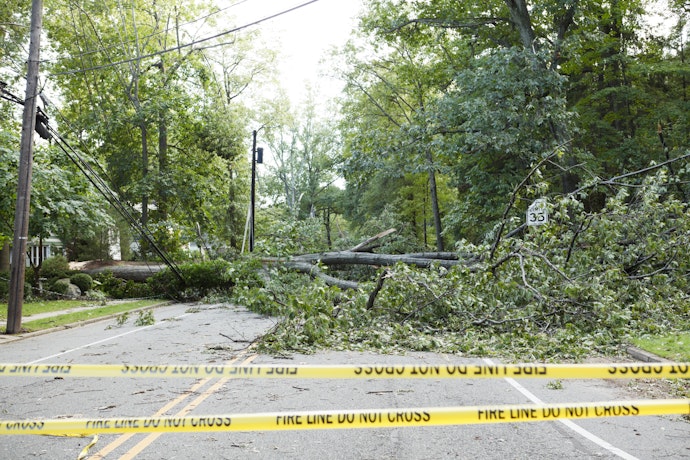5 ways to focus on safety with GPS fleet tracking
Learn how fleet management and video telematics can improve driver safety, reduce accidents, and optimize operations.
Read more
As the summer months approach, so does the annual Atlantic hurricane season. From June to November, the Gulf of Mexico and the Atlantic Ocean become a hotbed for dangerous weather that can wreak havoc on the operations of fleets operating in states like Texas and Florida. But it's not just those fleets that need to be on high alert. With the potential for supply chain disruptions and shipment delays, businesses across the entire country need to prepare for the impact of these powerful storms.
Weather events can also put fleet drivers at higher risk while out on the road. The Federal Highway Administration attributes 21% of yearly crashes to adverse weather, like rain, fog and wind, or slick pavement.1
In this article, we'll explore the key steps fleets and businesses can take to stay ahead of the curve and reduce the damage caused by hurricane season. We’ll explore how fleets can weather the storm and help keep drivers safe on the road with fleet management technology.
It’s important for the trucking industry to be prepared for severe weather events throughout the year, but past events show that June through November can be particularly critical. Here are some considerations to help fleets stay ahead of hurricane season:
Focus on fuel
Depending on where a hurricane makes landfall and the damage that it does, certain areas could see a major impact on fuel supply. It’s always a good idea to have extra fuel on hand, because even if there is no disruption to fuel availability from pipeline suppliers, prices could still increase sharply post-storm.
If a hurricane or tropical storm does impact your region and supplies become sparse, it becomes even more important to conserve fuel as you continue operations. Fleet tracking technology can go a long way toward helping your fleet monitor fuel consumption by:
Have an emergency plan
Some natural disasters come with advanced notice, but that’s not always the case. It’s good to have a plan in place for your organization, especially for fleet drivers and vehicles out on the road, in the areas of the U.S. that can be hit particularly hard by a sudden storm. This could include having predetermined stopping points should the weather suddenly turn or reassigning routes to keep fewer fleet vehicles on the road.
Fleet management technology can also be leveraged during a storm. Should a fleet driver encounter bad weather, fleet managers can use fleet tracking to:
Protect your assets
Do what you can to protect your fleet. While you may not have control over the location of your fleet facilities regarding potential storm surge and flooding, there are steps you can take to safeguard your tractors and trailers against wind damage. One such measure is to relocate as many assets as feasible to higher ground in order to minimize the potential harm caused by flooding. Another technique involves parking trailers closely together, with empty trailers positioned tightly between loaded ones to reduce the likelihood of them being moved around by strong winds.
If trailers or unpowered assets are moved during a hurricane, you can use asset tracking to pinpoint their locations. And, if thieves decide to use the cover of the storm to try to steal vehicles or assets, you can use GPS to help authorities locate and recover your property.
Don't let unforeseen weather events wreak havoc on your operations. Act today by scheduling a demo and exploring how fleet management technology can help you stay one step ahead of the storm. Whether it's hurricane season or any other time of the year, having the right tools and strategies in place can make all the difference in keeping your fleet and your business running smoothly.
Tags: Community, Field management, Vehicle & asset security, Safety, Cost control, Team Management




Find out how our platform gives you the visibility you need to get more done.
Learn how fleet management and video telematics can improve driver safety, reduce accidents, and optimize operations.
Read morePrepping Your Fleet for Extreme Events
Read moreLearn how innovations in video powered by AI and machine learning are helping to reshape safety and efficiency.
Read more